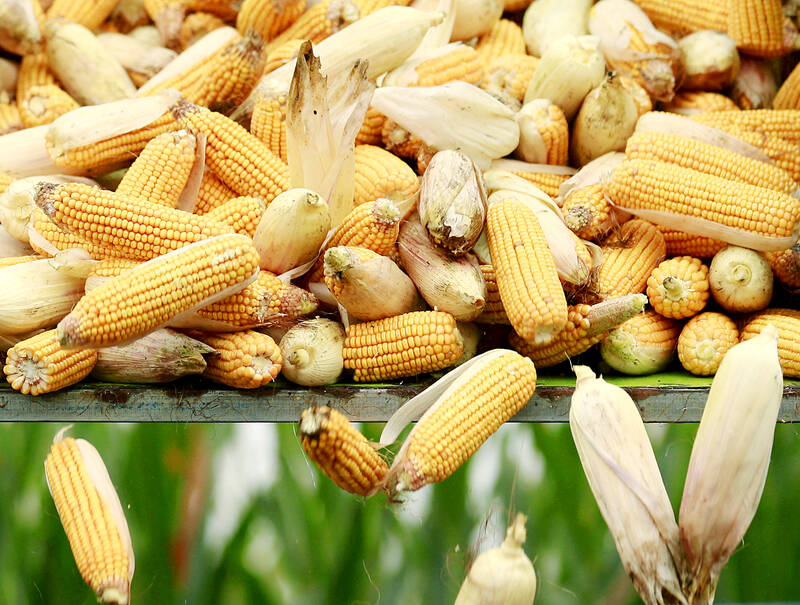Foxconn Interconnect Technology Ltd (FIT, 鴻騰精密) held a groundbreaking ceremony yesterday on a site of a planned factory in the southern Indian state of Telangana that local media outlets speculated will be used to manufacture Apple Inc's AirPods.
The ceremony was attended by FIT chairman and CEO Sidney Lu (盧松青) and K.T. Rama Rao, the Telangana Industries and Commerce minister, who wrote on Twitter that the investment by the Foxconn subsidiary is expected to create about 25,000 jobs.
Lu said at the ceremony that the new fab will serve clients and projects worldwide, which will help expand FIT's operations.

Several Indian news outlets reported in March that the fab will likely be used to produce the Apple AirPods wireless earphones and that production will commence late next year at the earliest.
FIT announced early last month that it would inject US$400 million into its wholly-owned subsidiary Foxconn Interconnect Technology Singapore Pte Ltd, of which US$150 million had been earmarked to finance its Indian subsidiary.
In an announcement late last month, the company said it would invest NT$722 million (US$23.43 million) to acquire land in Hyderabad, Telangana where the construction of factories, a research and development center, and dormitories was planned.

NEW IDENTITY: Known for its software, India has expanded into hardware, with its semiconductor industry growing from US$38bn in 2023 to US$45bn to US$50bn India on Saturday inaugurated its first semiconductor assembly and test facility, a milestone in the government’s push to reduce dependence on foreign chipmakers and stake a claim in a sector dominated by China. Indian Prime Minister Narendra Modi opened US firm Micron Technology Inc’s semiconductor assembly, test and packaging unit in his home state of Gujarat, hailing the “dawn of a new era” for India’s technology ambitions. “When young Indians look back in the future, they will see this decade as the turning point in our tech future,” Modi told the event, which was broadcast on his YouTube channel. The plant would convert

‘SEISMIC SHIFT’: The researcher forecast there would be about 1.1 billion mobile shipments this year, down from 1.26 billion the prior year and erasing years of gains The global smartphone market is expected to contract 12.9 percent this year due to the unprecedented memorychip shortage, marking “a crisis like no other,” researcher International Data Corp (IDC) said. The new forecast, a dramatic revision down from earlier estimates, gives the latest accounting of the ongoing memory crunch that is affecting every corner of the electronics industry. The demand for advanced memory to power artificial intelligence (AI) tasks has drained global supply until well into next year and jeopardizes the business model of many smartphone makers. IDC forecast about 1.1 billion mobile shipments this year, down from 1.26 billion the prior

People stand in a Pokemon store in Tokyo on Thursday. One of the world highest-grossing franchises is celebrated its 30th anniversary yesterday.

Zimbabwe’s ban on raw lithium exports is forcing Chinese miners to rethink their strategy, speeding up plans to process the metal locally instead of shipping it to China’s vast rechargeable battery industry. The country is Africa’s largest lithium producer and has one of the world’s largest reserves, according to the US Geological Survey (USGS). Zimbabwe already banned the export of lithium ore in 2022 and last year announced it would halt exports of lithium concentrates from January next year. However, on Wednesday it imposed the ban with immediate effect, leaving unclear what the lithium mining sector would do in the